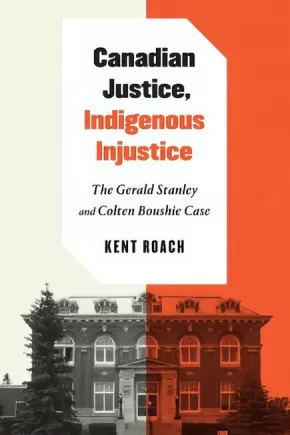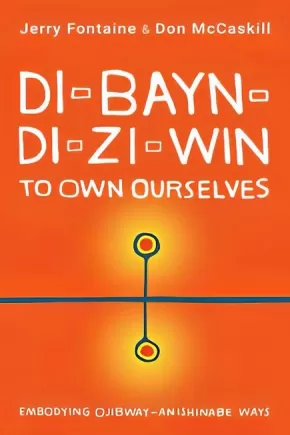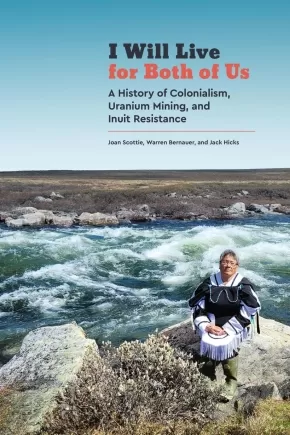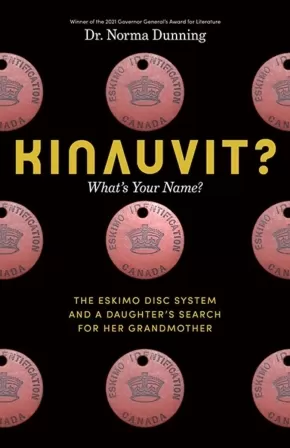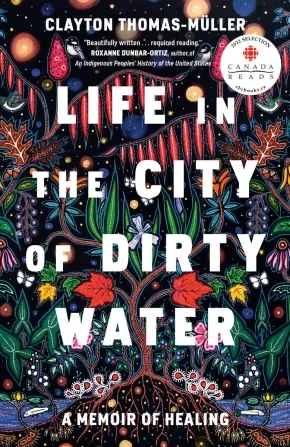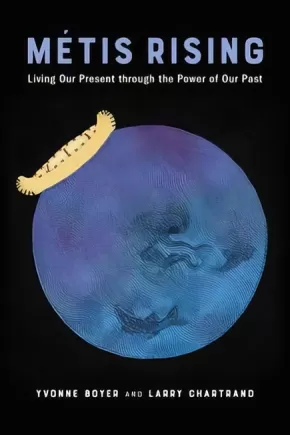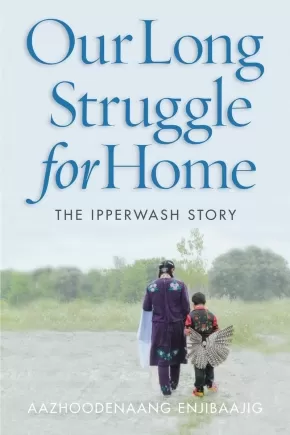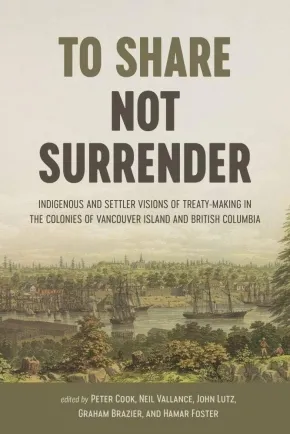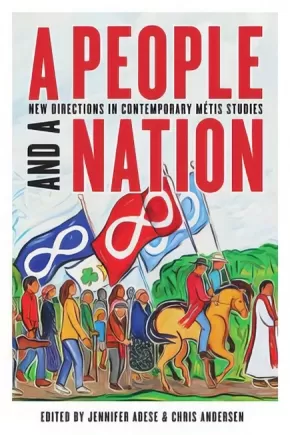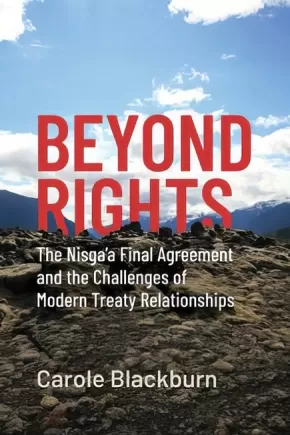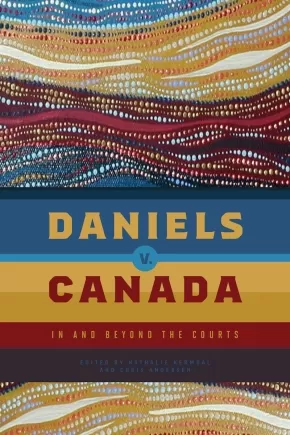Law / Politics
Synopsis:
Putting Gerald Stanley's acquittal for killing Colten Boushie in the context of Canada's colonial and systemic discrimination against Indigenous peoples.
In August 2016 Colten Boushie, a twenty-two-year-old Cree man from Red Pheasant First Nation, was fatally shot on a Saskatchewan farm by white farmer Gerald Stanley. In a trial that bitterly divided Canadians, Stanley was acquitted of both murder and manslaughter by a jury in Battleford with no visible Indigenous representation.
In Canadian Justice, Indigenous Injustice Kent Roach critically reconstructs the Gerald Stanley/Colten Boushie case to examine how it may be a miscarriage of justice. Roach provides historical, legal, political, and sociological background to the case including misunderstandings over crime when Treaty 6 was negotiated, the 1885 hanging of eight Indigenous men at Fort Battleford, the role of the RCMP, prior litigation over Indigenous underrepresentation on juries, and the racially charged debate about defence of property, self-defence, guns, and rural crime. Drawing on both trial transcripts and research on miscarriages of justice, Roach looks at jury selection, the controversial "hang fire" defence, how the credibility and beliefs of Indigenous witnesses were challenged on the stand, and Gerald Stanley's implicit appeals to self-defence and defence of property, as well as the decision not to appeal the acquittal. Concluding his study, Roach asks whether Prime Minister Justin Trudeau's controversial call to "do better" is possible, given similar cases since Stanley's, the difficulty of reforming the jury or the RCMP, and the combination of Indigenous underrepresentation on juries and overrepresentation among those victimized and accused of crimes.
Canadian Justice, Indigenous Injustice is a searing account of one case that provides valuable insight into criminal justice, racism, and the treatment of Indigenous peoples in Canada.
Reviews
"In a meticulously researched and documented analysis of the trial of Gerald Stanley for the killing of Boushie in 2016, Roach exposes a whole system designed to maintain inequality between Indigenous and non-Indigenous Canadians." - The Tyee
"This was a book that needed to be written. Roach, despite various reasons to be pessimistic about the future, offers practical suggestions on how the situation of Canadian justice and Indigenous injustice can be improved. But he admits himself that even these suggestions do not go far enough in rectifying the situation; this instead will take a wholescale shift in Canadian norms and values, not just in the judicial system. I wholeheartedly recommend this book to readers, both expert and general." - British Journal of Canadian Studies
Additional Information
336 pages | 6.00" x 9.00" | Paperback
Synopsis:
A timely anthology featuring diverse perspectives – Indigenous and non-Indigenous – on the right to fish in the Atlantic, with the goal of creating dialogue and solutions.
Canadians were shocked in the fall of 2020 by news coverage of non-Indigenous crowds threatening Mi'kmaw fish harvesters and burning boats and plant buildings in southwest Nova Scotia. The crisis began when a few Mi'kmaq Nations began to issue their own licenses to community members to conduct small-scale lobster fishing to earn "moderate livelihoods", a treaty right recognized in the Marshall ruling. Non-Indigenous harvesters reacted, some of them violently, against the idea of a new fishery operating outside DFO-regulated licensing, seasons, and fishing zones. With the major issues still unresolved, numerous flashpoints hold potential for future conflict. The question now looms: where do we go from here?
With contributions from Mi'kmaw leaders, academic researchers, legal experts, non-Indigenous industry leaders, and other knowledgeable observers on all sides of the conflict, Contested Waters: The Struggle for Rights and Reconciliation in the Atlantic Fishery provides a respectful and realistic examination of Indigenous and non-Indigenous perspectives with the goal of encouraging dialogue and a shared search for lasting solutions.
Synopsis:
A collaboration exploring the importance of the Ojibway-Anishinabe worldview, use of ceremony, and language in living a good life, attaining true reconciliation, and resisting the notions of indigenization and colonialization inherent in Western institutions.
Indigenization within the academy and the idea of truth and reconciliation within Canada have been seen as the remedy to correct the relationship between Indigenous Peoples and Canadian society. While honourable, these actions are difficult to achieve given the Western nature of institutions in Canada and the collective memory of its citizens, and the burden of proof has always been the responsibility of Anishinabeg.
Authors Makwa Ogimaa (Jerry Fontaine) and Ka-pi-ta-aht (Don McCaskill) tell their di-bah-ji-mo-wi-nan (Stories of personal experience) to provide insight into the cultural, political, social, and academic events of the past fifty years of Ojibway-Anishinabe resistance in Canada. They suggest that Ojibway-Anishinabe i-zhi-chi-gay-win zhigo kayn-dah-so-win (Ways of doing and knowing) can provide an alternative way of living and thriving in the world. This distinctive worldview — as well as Ojibway-Anishinabe values, language, and ceremonial practices — can provide an alternative to Western political and academic institutions and peel away the layers of colonialism, violence, and injustice, speaking truth and leading to true reconciliation.
Reviews
"Fontaine and McCaskill write in a way our own Indigenous People can understand and feel; their passion is tangible." — Graham Hingangaroa Smith, Distinguished Professor, Massey University - NZ
"There are multiple ways to inhabit our deepest principles. There are also many ways to honor land and our elders by embodying the teachings of both. Here is life found in kindness, loving, and truth. How do we access healing and how do we share this healing with others? Reading this book is one way. Tears of gratitude are for you both, Jerry Fontaine and Don McCaskill. Mahalo nui no ko ?ike nahenahe. Thank you for this mutual emergence shaped as much by friendship as it is by ?ike kupuna - elder knowledge. What is within these pages are ceremonial gifts offered to all who will take the time to connect with what is inevitable about our collective evolution." — Manulani Aluli Meyer, University of Hawai‘i
Additional Information
328 pages | 6.00" x 9.00" | Paperback
Synopsis:
Born at a traditional Inuit camp in what is now Nunavut, Joan Scottie has spent decades protecting the Inuit hunting way of life, most famously with her long battle against the uranium mining industry. Twice, Scottie and her community of Baker Lake successfully stopped a proposed uranium mine. Working with geographer Warren Bernauer and social scientist Jack Hicks, Scottie here tells the history of her community’s decades-long fight against uranium mining.
Scottie's I Will Live for Both of Us is a reflection on recent political and environmental history and a call for a future in which Inuit traditional laws and values are respected and upheld. Drawing on Scottie’s rich and storied life, together with document research by Bernauer and Hicks, their book brings the perspective of a hunter, Elder, grandmother, and community organizer to bear on important political developments and conflicts in the Canadian Arctic since the Second World War.
In addition to telling the story of her community’s struggle against the uranium industry, I Will Live for Both of Us discusses gender relations in traditional Inuit camps, the emotional dimensions of colonial oppression, Inuit experiences with residential schools, the politics of gold mining, and Inuit traditional laws regarding the land and animals. A collaboration between three committed activists, I Will Live for Both of Us provides key insights into Inuit history, Indigenous politics, resource management, and the nuclear industry.
Reviews
“I Will Live for Both of Us is the first-hand account of an incredible woman’s resistance to uranium mining in her region specifically, but it is also a detailed description of the history of colonialism in the Kivalliq region, and the past and present structures that perpetuate colonialism. It shines a light on the critical activism that has been happening in this region over the course of decades.” — Willow Scobie
"I Will Live for Both of Us offers a unique and important contribution to our understanding of the history and contemporary debates around mining in the Canadian North. It foregrounds the voice and activism of an Inuk woman, Joan Scottie, and documents her long struggle against the incursions of uranium mining in the Kivalliq Region of Nunavut. Written accessibly it will appeal to readers interested in the North, Indigenous issues, and industrial development.” — Arn Keeling
Educator Information
Table of Contents
Ch 1: Growing Up on the Land
Ch 2: Qallunaat, Moving to Town, and Going to School
Ch 3: Uranium Exploration, Petitions, and a Court Case
Ch 4: Kiggavik Round One, the Urangesellschaft Proposal
Ch 5: The Nunavut Agreement and Gold Mining Near Baker Lake
Ch 6: Uranium Policy in Nunavut
Ch 7: Kiggavik Round Two, the AREVA Proposal
Ch 8: Protecting the Land and the Caribou
Conclusion
Additional Information
264 pages | 6.00" x 9.00" | Index, Bibliography | Paperback
Synopsis:
From the winner of the 2021 Governor General's Award for literature, a revelatory look into an obscured piece of Canadian history: what was then called the Eskimo Identification Tag System
In 2001, Dr. Norma Dunning applied to the Nunavut Beneficiary program, requesting enrolment to legally solidify her existence as an Inuk woman. But in the process, she was faced with a question she could not answer, tied to a colonial institution retired decades ago: “What was your disc number?”
Still haunted by this question years later, Dunning took it upon herself to reach out to Inuit community members who experienced the Eskimo Identification Tag System first-hand, providing vital perspective and nuance to the scant records available on the subject. Written with incisive detail and passion, Dunning provides readers with a comprehensive look into a bureaucracy sustained by the Canadian government for over thirty years, neglected by history books but with lasting echoes revealed in Dunning’s intimate interviews with affected community members. Not one government has taken responsibility or apologized for the E-number system to date — a symbol of the blatant dehumanizing treatment of the smallest Indigenous population in Canada.
A necessary and timely offering, Kinauvit? provides a critical record and response to a significant piece of Canadian history, collecting years of research, interviews and personal stories from an important voice in Canadian literature.
Reviews
"‘Mom, what are we’? a question asked by Inuit scholar and writer Norma Dunning, which remains like a floating specter over the course of this highly original and devastating book, vividly recalling the disembodying process of colonization. Much more than this, however, this highly personal, evocative and robustly researched amalgam of wrenching memories, historical records, and testimony, Kinauvit? What’s Your Name?, is a multi-dimensional life’s work that demonstrates the power and will of Indigenous peoples’ reclamation of self."— Brendan Hokowhitu, Professor of Indigenous Research, The University of Queensland, August 2022
Additional Information
184 pages | 5.50" x 8.50" | Hardcover
Synopsis:
An electrifying memoir that braids together the urgent issues of Indigenous rights and environmental policy, from a nationally and internationally recognized activist and survivor.
There have been many Clayton Thomas-Mullers: The child who played with toy planes as an escape from domestic and sexual abuse, enduring the intergenerational trauma of Canada's residential school system; the angry youngster who defended himself with fists and sharp wit against racism and violence, at school and on the streets of Winnipeg and small-town British Columbia; the tough teenager who, at 17, managed a drug house run by members of his family, and slipped in and out of juvie, operating in a world of violence and pain.
But behind them all, there was another Clayton: the one who remained immersed in Cree spirituality, and who embraced the rituals and ways of thinking vital to his heritage; the one who reconnected with the land during summer visits to his great-grandparents' trapline in his home territory of Pukatawagan in northern Manitoba.
And it's this version of Clayton that ultimately triumphed, finding healing by directly facing the trauma that he shares with Indigenous peoples around the world. Now a leading organizer and activist on the frontlines of environmental resistance, Clayton brings his warrior spirit to the fight against the ongoing assault on Indigenous peoples' lands by Big Oil.
Tying together personal stories of survival that bring the realities of the First Nations of this land into sharp focus, and lessons learned from a career as a frontline activist committed to addressing environmental injustice at a global scale, Thomas-Muller offers a narrative and vision of healing and responsibility.
Reviews
“Clayton Thomas-Müller—Cree poet and environmental warrior dedicated to decolonization—has crafted an awesome, lyrical memoir that captures the experiences of urban Indigenous youth facing poverty, drugs, alcohol, domestic violence, and juvenile detention. Most, like Clayton, inherited the intergenerational trauma of residential schools. Clayton found a way to escape trauma and poverty in order to fight for his people. This beautifully written book is required reading for everyone who cares about justice for the survivors of genocide who continue to survive in colonized conditions. It offers a path to liberation that may also be the way to saving the earth and humanity itself.” — Roxanne Dunbar-Ortiz, author of An Indigenous Peoples’ History of the United States
“This book is an adventure story in every way. A life of drug dealers and crackhouses and guns; leaving that behind for a remarkable time of spiritual and personal growth; and there’s the ongoing adventure of working desperately to protect the planet and its sacred places. Clayton Thomas-Müller relates these adventures in ways that will help everyone through unfamiliar terrain—he’s a trustworthy guide and an authentic storyteller. In a moment when Indigenous people around the world are coming to the very fore of the most crucial fights, this volume will broaden your understanding in powerful ways. And you won’t forget its scenes any time soon.”—Bill McKibben, co-founder of 350.org and author of Earth and Oil and Honey
Additional Information
240 pages | 5.19" x 7.97" | Paperback
Synopsis:
Métis Rising draws on a remarkable cross-section of perspectives to tell the histories, stories, and dreams of people from varied backgrounds, demonstrating that there is no single Métis experience – only a common sense of belonging and a commitment to justice.
The contributors to this unique collection, most of whom are Métis themselves, examine often-neglected aspects of Métis existence in Canada. They trace a turbulent course, illustrating how Métis leaders were born out of the need to address abhorrent social and economic disparities following the Métis–Canadian war of 1885. They talk about the long and arduous journey to rebuild the Métis nation from a once marginalized and defeated people; their accounts ranging from personal reflections on identity to tales of advocacy against poverty and poor housing. And they address the indictment of the jurisdictional gap whereby neither federal nor provincial governments would accept governance responsibility towards Métis people.
Métis Rising is an extraordinary work that exemplifies how contemporary Métis identity has been forged by social, economic, and political concerns into a force to be reckoned with.
A must-read not only for scholars and students of Métis and Indigenous studies but for lawyers, policymakers, and all Canadians who wish a broader understanding of this country’s colonial past.
Additional Information
280 pages | 6.00" x 9.00" | 3 b&w illus., 2 maps, 8 charts, 3 tables | Hardcover
Synopsis:
Most Canadians know only a tiny part of the Ipperwash story – the 1995 police shooting of Dudley George. In Our Long Struggle for Home, George’s sister, cousins, and others from the Stoney Point Reserve tell of broken promises and thwarted hopes in the decades-long battle to reclaim their ancestral homeland, Aazhoodena, both before and after the police action culminating in George’s death.
Offering insights into Nishnaabeg lifeways and historical treaties, this compelling account conveys how government decisions have affected lives, livelihoods, and identity. We hear of the devastation wrought by forcible eviction when the government re-purposed Nishnaabeg ancestral territory as an army training camp in 1942, promising to return it after the war. By May 1993, the elders had waited long enough. They entered the still-functioning training camp, under cover of a picnic outing, and constituted themselves as the interim government of the reclaimed Stoney Point Reserve. The next two years brought cultural and social revival, though it was ultimately quashed as an illegal occupation.
Our Long Struggle for Home also shows what can be accomplished through perseverance and undiminished belief in a better future. This is a necessary lesson on colonialism, the power of resistance, persistence, and the possibilities inherent in recognizing treaty rights.
This is an important read for anyone who seeks a better understanding of the continuing influence of Canada’s colonial history and the injustices that Indigenous people have faced, and is a story that will inspire the Indigenous youth of today. It belongs in schools, public libraries, and reserves.
Reviews
"Our Long Struggle for Home is a beautiful articulation of Nishnaabeg world building and the deep relationality that is our practice to make and remake home. The Azhoodenaang Enjibaajig have gifted us the stories of their struggle to live as Nishnaabeg in their homeland and teach us how to live together in a way that brings forth more life." — Leanne Betasamosake Simpson, author of Noopiming: The Cure for White Ladies
"This is an incredible story about resistance and truth. Our Long Struggle for Home is critically important to the discussion about healing and reconciliation because it brings some clarity to what is taking place in Canada. It is brilliant in its simplicity." — Jerry Fontaine, former chief of the Sagkeeng First Nation
"This excellent book captures the honesty, dignity, and resilience of the Nishinaabe people involved in reclaiming their homeland at Stoney Point. It’s the first time the Ipperwash story has been told from their perspective; it’s a substantial contribution." — Justice Sidney B. Linden, commissioner for the Ipperwash Inquiry
"Our Long Struggle for Home is an excellent book of public education. It illustrates the havoc wreaked on Indigenous communities and complex outcomes of systemic poverty, frustration, and injustice. Through beautiful, and at times devastating, stories, it also offers powerful examples of healing, nourishment, and restoration." — Nicole Latulippe, assistant professor, Geography and Environmental Studies, University of Toronto Scarborough
Educator Information
Table of Contents
Foreword / John Borrows
Maps
Genealogy
Introduction
1 No Word for Surrender
2 “The House Was Gone”
3 Disruption and Determination
4 Under Cover of Prayer Meetings
5 Burying the Hatchet under a Peace Tree
6 Peacekeepers and Nation Builders
7 Taking the Barracks
8 September 5–6, 1995, Project Maple
9 September 5–6, 1995, from Our Point of View
10 After the Shooting
Epilogue: Two Boats Travelling Side by Side
Afterword: Learning to Be Treaty Kin / Heather Menzies
Notes; Index
Additional Information
208 pages | 6.00" x 9.00" | 2 maps, 1 genealogy chart | Paperback
Synopsis:
The horrors of the Indian residential schools are by now well-known historical facts, and they have certainly found purchase in the Canadian consciousness in recent years. The history of violence and the struggles of survivors for redress resulted in the Truth and Reconciliation Commission, which chronicled the harms inflicted by the residential schools and explored ways to address the resulting social fallouts. One of those fallouts is the crisis of Indigenous over-incarceration. While the residential school system may not be the only harmful process of colonization that fuels Indigenous over-incarceration, it is arguably the most critical factor. It is likely that the residential school system forms an important part of the background of almost every Indigenous person who ends up incarcerated, even those who did not attend the schools. The legacy of harm caused by the schools is a vivid and crucial link between Canadian colonialism and Indigenous over-incarceration. Reconciliation and Indigenous Justice provides an account of the ongoing ties between the enduring trauma caused by the residential schools and Indigenous over-incarceration.
Reviews
“David Milward provides a clear-sighted and accessible engagement with the challenge of Indigenous over-incarceration and the continuing legacy of Indian Residential Schools, using compelling examples to present a pathway for doing justice better in Canada.” — Andrew Woolford, author of The Politics of Restorative Justice and Professor, Department of Sociology and Criminology University of Manitoba
“Essential reading for anyone who wants to understand how the Canadian criminal justice system fails Indigenous people and how Indigenous Justice can, under the right conditions, be fairer, less expensive and more effective.” — Kent Roach, Professor of Law, University of Toronto
Educator Information
Chapter 1: The Legacy of the Residential Schools
Chapter 2: Different Views of Crime
1. Theoretical Constructions of
2. Constructions of Crime and Justice Policy
Chapter 3: The Seeds of Intergenerational Trauma
1. Stories and Studies of Trauma
2. Victimized by the Residential Schools
3. Abuse All Around: School and Home
4. Subsequent Substance Abuse
5. Mental Health
6. Racism in and outside of Residential Schools
7. Loss of Culture
8. Deficient Parenting
Chapter 4: Intergenerational Trauma and Crime
1. Intergenerational Domestic Violence
2. Intergenerational Sexual Abuse
3. Poverty
4. Child Welfare
5. Substance Abuse in Later Generations
6. FASD
7. Multiple Traumas
8. At a Community Level
Chapter 5: Reconciliation So Far
1. What is Meant by Reconciliation
2. The Calls to Action and Indigenous Justice
3. Reconciliation Moving Forward
Chapter 6: The Status Quo is Not Reconciliation
1. The Settlement Agreement
2. The Aboriginal Healing Foundation
3. The Problem with Deterrence
4. Punishment as Retribution
5. Indigenous-Specific Sentencing
6. Need for More Comprehensive Resolution
Chapter 7: Preventative Programming
1. Justice Reinvestment and Long-Term Savings
2. Preventative Programming as Social Reparations
3. Indigenous-Specific Preventative Programming
Chapter 8: Arguments for Indigenous Criminal Justice
1. Comparing Indigenous Justice to Restorative Justice
2. Why We Need Alternatives to Incarceration
3. Greater Victim Inclusion
4. Encouraging the Offender to be Responsible
5. Repairing Relationships
6. More Effective Than Incarceration
Chapter 9: Arguments against Restorative Justice
1. Power Imbalances
2. Getting Off Easy
3. Doubts about Greater Efficacy
4. Divergence of Interests between the Participants
5. Not Taking Harm Seriously
6. Economic Concerns
Chapter 10: Ways Forward for Indigenous Justice
1. Procedural Protections
2. Making Indigenous Justice More Effective
3. Indigenous Justice and Offender Responsibility
4. Will No Progress Be Made?
Chapter 11: Indigenous Corrections and Parole
1. The Theory of Indigenous Healing in Prison
2. Canadian Correctional Law
3. Does It Work?
4. Lack of Resource Commitment
5. Security Classification and Parole
6. Risk Assessment and Parole
7. Indigenous Gangs and Parole
Chapter 12: Reconciliation in the Future
Additional Information
240 pages | 6.00" x 9.00" | Paperback
Synopsis:
Too often, history and knowledge of Indigenous-settler conflict over land take the form of confidential reports prepared for court challenges. To Share, Not Surrender offers an entirely new approach, opening scholarship to the public and augmenting it with First Nations community expertise.
The collection appraises the historical and present-day relevance of treaty-making in the colonies of Vancouver Island and British Columbia. The authors take us back to when James Douglas and his family relocated to Fort Victoria on Vancouver Island in 1849, critically tracing the transition from treaty-making in the colony of Vancouver Island to reserve formation in the colony of British Columbia. Informed by cel’aṉ’en – “our culture, the way of our people” – this multivocal work explicitly addresses the tensions between academic research, Indigenous knowledge, and local experience. The collection includes essays, translations/interpretations of the treaties into the SENĆOŦEN and Lekwungen languages, and contributions by participants of the Songhees, Huu-ay-aht, and WSANEC peoples.
The chapters demonstrate that the continuing inability to arrive at equitable land-sharing arrangements stem from a fundamental absence of will with respect to accommodating First Nations world views. To Share, Not Surrender is an attempt to understand why, and thus to advance the urgent task of reconciliation in Canada.
The multiple perspectives presented in this important work will find equally diverse audiences: Canadian historians, scholars and students of Indigenous studies, ethno-historians, legal historians, lawyers practising in the areas of Aboriginal law, and researchers preparing historical reports on First Nation land claims.
Reviews
"The past is with us and history matters. Read To Share Not Surrender as a great example of how there can be different interpretations of the past." — Robin Fisher, The British Columbia Review
"After James Douglas negotiated treaties on Vancouver Island, he never made another in BC. Why not? Some of the foremost experts in the field work here to answer this question, analyzing Douglas’s policies and their lasting impact on BC First Nations’ continuing battle with rights and title." — Daniel Boxberger, professor emeritus, anthropology, Western Washington University
"The connection that To Share, Not Surrender makes between the events of the 1850s and 1860s and the modern-day treaty process in British Columbia is extremely valuable. It helps the reader develop a better understanding, not only of colonial history, but also of the relevance of Indigenous law to territorial claims today." — Kent McNeil, author of Flawed Precedent: The St. Catherine’s Case and Aboriginal Title
Educator Information
Contributors: Keith Thor Carlson, Robert Clifford, Emchayiik Robert Dennis Sr., STOLCEL John Elliott Sr., Elmer George, Stephen Hume, Maxine Hayman Matilpi, Kevin Neary, Adele Perry, Sarah Pike, Chief Ron Sam, and Laura Spitz
Additional Information
330 pages | 6.00" x 9.00" | Paperback
Synopsis:
In A People and a Nation, the authors, most of whom are themselves Métis, offer readers a set of lenses through which to consider the complexity of historical and contemporary Métis nationhood and peoplehood. Multidisciplinary chapters on identity, politics, literature, history, spirituality, religion, and kinship networks orient the conversation toward Métis experiences today.
The chapters within are themselves also a reorientation given that the field of Métis Studies has been afflicted by a longstanding tendency to situate Métis within deeply racialized contexts, and/or by an overwhelming focus on the nineteenth century. A People and a Nation confronts such problematic characterizations head on, training a critical gaze on conventional historiographical positionings of the Métis people as a primitive intermediate force that opened up the Canadian West.
A People and a Nation dismantles the impoverished notions that continue to shape political, legal, and social understandings of Métis existence. It is a timely collection that convincingly demonstrates how racialized interpretative frameworks diminish the Métis people and are incompatible with the task of understanding Métis peoplehood and nationhood.
Reviews
Educator Information
This important work will appeal not only to scholars in Métis studies but also to scholars and students of Indigenous studies, political science, sociology, history, and cultural studies, and to policy workers and others seeking a better understanding of the Métis people and the current state of Métis studies.
Table of Contents
Introduction: A New Era of Métis Studies Scholarship / Chris Andersen and Jennifer Adese
1 Peoplehood and the Nation Form: Core Concepts for a Critical Métis Studies / Chris Andersen
2 The Power of Peoplehood: Reimagining Metis Relationships, Research, and Responsibilities / Robert L.A. Hancock
3 The Race Question in Canada and the Politics of Racial Mixing / Daniel Voth
4 Challenging a Racist Fiction: A Closer Look at Métis-First Nations Relations / Robert Alexander Innes
5 Restoring the Balance: Métis Women and Contemporary Nationalist Political Organizing / Jennifer Adese
6 Alcide Morrissette: Oral Histories of a Métis Man on the Prairies in the Mid-Twentieth Century / Jesse Thistle
7 “We’re Still Here and Métis:” Rewriting the 1885 Resistance in Marilyn Dumont’s The Pemmican Eaters / June Scudeler
8 Mary and the Métis: Religion as a Site for New Insight in Métis Studies / Paul L. Gareau
9 Building the Field of Métis Studies: Toward Transformative and Empowering Métis Scholarship / Adam Gaudry
List of Contributors; Index
Additional Information
252 pages | 6.00" x 9.00" | Paperback
Synopsis:
In 2000, the Nisg̱a’a treaty marked the culmination of over one hundred years of Nisg̱a’a people protesting, petitioning, litigating, and negotiating for recognition of their rights and land title. Beyond Rights explores this ground-breaking achievement and its impact.
Treaty making has long been an important element in relationships between the Crown and Indigenous peoples in what is now Canada, but modern treaties are more complex and multifaceted. Embodying the force of law, they are social and political compacts intended to create lasting reciprocal relationships between treaty partners. The Nisg̱a’a were trailblazers in gaining Supreme Court recognition of unextinguished Aboriginal title, and the treaty marked a turning point in the relationship between First Nations and provincial and federal governments. By embedding three key elements – self-government, title, and control of citizenship – the Nisg̱a’a treaty tackled fundamental issues concerning state sovereignty, the underlying title of the Crown, and the distribution of rights.
Using this pivotal case study, Beyond Rights analyzes both the potential and the limits of treaty making as a way to address historical injustice and achieve contemporary legal recognition. It also assesses the possibilities for a distinct Indigenous citizenship in a settler state with a long history of exclusion and assimilation.
This informed and critical analysis is for scholars and students of Indigenous studies, anthropology, political science, law, and socio-legal studies, as well as for practitioners and Indigenous communities engaged in intergovernmental relations.
Reviews
"Beyond Rights rejects one-sided assessments of modern treaty agreements and provides a nuanced view of their generative potential as well as their inherent limits. It will undoubtedly become a major reference on this topic." — Martin Papillon, professor of political science, Université de Montréal
"Carole Blackburn provides a sophisticated analysis of the Nisg̱a’a land claim and self-government agreement. This is an important and timely book." — Paul Nadasdy, professor of anthropology and American Indian and Indigenous studies, Cornell University
Additional Information
202 pages | 6.00" x 9.00" | 5 black and white photos | Hardcover
Synopsis:
In Daniels v. Canada the Supreme Court determined that Métis and non-status Indians were “Indians” under section 91(24) of the Constitution Act, 1867, one of a number of court victories that has powerfully shaped Métis relationships with the federal government.
However, the decision (and the case) continues to reverberate far beyond its immediate policy implications. Bringing together scholars and practitioners from a wide array of professional contexts, this volume demonstrates the power of Supreme Court of Canada cases to directly and indirectly shape our conversations about and conceptions of what Indigeneity is, what its boundaries are, and what Canadians believe Indigenous peoples are “owed.”
Attention to Daniels v. Canada’s variegated impacts also demonstrates the extent to which the power of the courts extend and refract far deeper and into a much wider array of social arenas than we often give them credit for. This volume demonstrates the importance of understanding “law” beyond its jurisprudential manifestations, but it also points to the central importance of respecting the power of court cases in how law is carried out in a liberal nation-state such as Canada.
Reviews
"This important collection of original pieces focusing on Daniel’s v. Canada and the Supreme Court’s decision will have an impact for years to come. Reader’s will appreciate the diverse areas of expertise found in this volume, including Indigenous leadership, political activism, sociology, law, and anthropology." — Christopher Adams
“Articulate, thoughtful, provocative assessments of how we might assess the Supreme Court’s 2016 decision regarding the Metis People’s legal status in Canada.” — William Craig Wicken
Educator Information
Other contributors: Tony Belcourt, Catherine Bell, Deborah A. Bolnick, Brenda L. Gunn, Arend J.A. Hoekstra, Thomas Isaac, Darryl Leroux, Jason Madden, Brenda Macdougall, Austin W. Reynolds, Rick W.A. Smith, Lauren Springs, D’Arcy Vermette
Table of Contents
Introduction
Ch. 1—Daniels in Context
Ch. 2—Harry Daniels and Section 91 (24) of the British North America Act
Ch. 3—After the Hysteria: Understanding Daniels v. Canada from a Métis Nation Perspective
Ch. 4—Daniels v Canada: A Framework for Redress
Ch. 5—The Other Declarations in Daniels: Fiduciary Obligations and the Duty to Negotiate
Ch. 4—Racism, Canadian Jurisprudence, and the de-Peopling of the Métis in Daniels
Ch. 5—Daniels Through an International Law Lens
Ch. 6—Daniels v. Canada Beyond Jurisprudential Interpretation: What to do Once the Horse has Left the Barn
Ch. 7—Outlining the Origins of “Eastern métis” Studies
Ch. 8—Making Kin in a Postgenomic World: Indigenous Belonging after the Genome
Ch. 9—How We Know Who We Are: Historical Literacy, Kinscapes, and Defining a People
Conclusion: The Multiple Lives of the Daniels Case
Additional Information
336 pages | 6.00" x 9.00" | index, bibliography
Synopsis:
This second edition expands the provocative analysis of the racist colonial dynamics at play in philanthropy and finance into other sectors and offers practical advice on how anyone can be a healer.
The world is out of balance. With increasing frequency, we are presented with the inescapable truth that systemic racism and colonial structures are foundational principles to our economies. The $1 trillion philanthropic industry is one example of a system that mirrors oppressive colonial behavior. It’s an industry whose name means “the love for humankind,” yet it does more harm than good.
In Decolonizing Wealth, Edgar Villanueva looks past philanthropy’s glamorous, altruistic façade and into its shadows: white supremacy, savior complexes, and internalized oppression. Across history and to the present day, the accumulation of wealth is steeped in trauma. How can we shift philanthropy toward social reconciliation and healing if the cornerstones are exploitation, extraction, and control?
Drawing from Native traditions, Villanueva empowers individuals and institutions to begin to repair the damage through his Seven Steps to Healing. In this second edition, Villanueva adds inspiring examples of people using their resources to decolonize entertainment, museums, libraries, land ownership, and much more.
Everyone can be a healer and a leader in restoring balance—and we need everyone to do their part. As Villanueva writes, “All our suffering is mutual. All our healing is mutual. All our thriving is mutual.” Are you ready?
Reviews
“Edgar outlines with compassion and clarity thoughtful and practical steps toward aligning our money with our values. There are important lessons here for anyone working in finance or philanthropy.” —Keith Mestrich, President and CEO, Amalgamated Bank
“Decolonizing Wealth is a must-read for philanthropists and donors looking to achieve the change we want to see in the world. Compelling, honest, and kind, Edgar is clear that we must free funding resources and the philanthropic sector itself from frameworks that further exacerbate the problems rather than bring us closer to identifying and activating the solutions.”—Alicia Garza, co-creator of Black Lives Matter Global Network, and Principal, Black Futures Lab
“Edgar has broken through the tired jargon of philanthropy-speak and written a fresh, honest, painful, and hopeful book, grounded in his own truths and Native traditions. He offers some radical thinking about what it would take to bring about a world where power and accountability shifted and communities controlled the resources vital to their strength and futures.”—Gara LaMarche, President, Democracy Alliance; former President, Atlantic Philanthropies; and former Vice President and Director of US Programs, Open Society Foundations
“Due to years of detrimental federal Indian policy and discriminatory economic systems, Native American communities have been marginalized and left out of the economic opportunity experienced by other Americans. Edgar offers a new vision and an Indigenous perspective that can put us on a better path. Everyone should read Decolonizing Wealth, especially those who control the flow of resources in government, philanthropy, and finance.”—LaDonna Harris (Comanche), politician, activist, and founder of Americans for Indian Opportunity
“Decolonizing Wealth offers a refreshing and inspired look at how wealth can better serve the needs of communities of color and atone for the ways in which it has traditionally been used to inflict harm and division. Using a solutions-oriented framing, Edgar makes a solid case for how Indigenous wisdom can be used as a guiding light to achieve greater equity in the funding and philanthropic world.”—Kevin Jennings, President, Tenement Museum
“Finally, a Native perspective on how to heal internal systemic challenges. Decolonizing Wealth not only is an unflinching examination of today’s philanthropic institutions and the foundations upon which they were built but also offers critical wisdom applicable to many sectors.” —Sarah Eagle Heart (Lakota), CEO, Native Americans in Philanthropy
“We should all be grateful to Edgar Villanueva for helping us understand, by sharing Indigenous wisdom, that there is a path toward a more transformative approach to wealth, to investment, and to giving. We cannot truly call ourselves ethical, progressive, or mission-aligned investors until we have wrestled honestly with the fundamental issues raised in this book.”—Andrea Armeni, co-founder and Executive Director, Transform Finance
Additional Information
240 pages | 5.56" x 8.50" | Paperback
Synopsis:
For 34 years, Lynn Gehl fought against the sex discrimination built into Canada’s Indian Act. This is the story of her challenges and eventual success.
A follow-up to Claiming Anishinaabe, Gehl v Canada is the story of Lynn Gehl’s lifelong journey of survival against the nation-state’s constant genocidal assault against her existence. While Canada set up its colonial powers—including the Supreme Court, House of Commons, Senate Chamber, and the Residences of the Prime Minister and Governor General—on her traditional Algonquin territory, usurping the riches and resources of the land, she was pushed to the margins, exiled to a life of poverty in Toronto’s inner-city.
With only beads in her pocket, Gehl spent her entire life fighting back, and now offers an insider analysis of Indian Act litigation, the narrow remedies the court imposes, and of obfuscating parliamentary discourse, as well as an important critique of the methodology of legal positivism. Drawing on social identity and Indigenous theories, the author presents Disenfranchised Spirit Theory, revealing insights into the identity struggles facing Indigenous Peoples to this day.
Reviews
“Congratulations . . . to Dr. Lynn Gehl for her successful challenge of the Indian Registrar’s refusal to allow her to be registered under the Indian Act. . . . Good win, Lynn!”—The Honourable Murray Sinclair
“With knowledge and experience from years of advocacy before Parliament as well as the courts, and the depth of perception typical of all her scholarly work, Dr. Gehl assesses what more is needed before the Indian Act system can be truly egalitarian. Her book is unique and inspiring.” —Mary Eberts, from the foreword
“[R]emarkable . . . a monument in Indigenous struggles with the colonial Crown.” —Veldon Coburn, Institute of Indigenous Research and Studies at University of Ottawa
“Gehl embodies essential Indigenous wisdom, bravery, and responsibility in her work to dismantle the systems of colonial oppression. Her work serves as a beacon in a network of pathways for our people to make their way home.” —Chief Wendy Jocko, Algonquins of Pikwàkanagàn First Nation
“The legal decision in Gehl v Canada will have profound effects for the future, ensuring that hundreds of thousands of Indigenous mothers will be able to pass their status on to their children. This victory, the product of decades of struggle by Lynn Gehl, is chronicled here. Read it and learn!” —Bonita Lawrence, author of Fractured Homeland
Educator Information
This is the follow-up to Claiming Anishinaabe.
Centres Anishinaabe methods of personal truth over western academia.
Introduces readers to the paternity policy of the Indian Art, explaining how this policy was sexual discrimination and bloodless genocide. The paternity policy of the Indian Act required individuals claiming Status to demonstrate the lineage of both parents. Harmful to Indigenous mothers and children, and imposing a high evidentiary burden on Indigenous people claiming Status, it was overturned on April 20, 2017, in what is now known as the Gehl decision.
Additional Information
288 pages | 6.00" x 9.00" | Paperback

